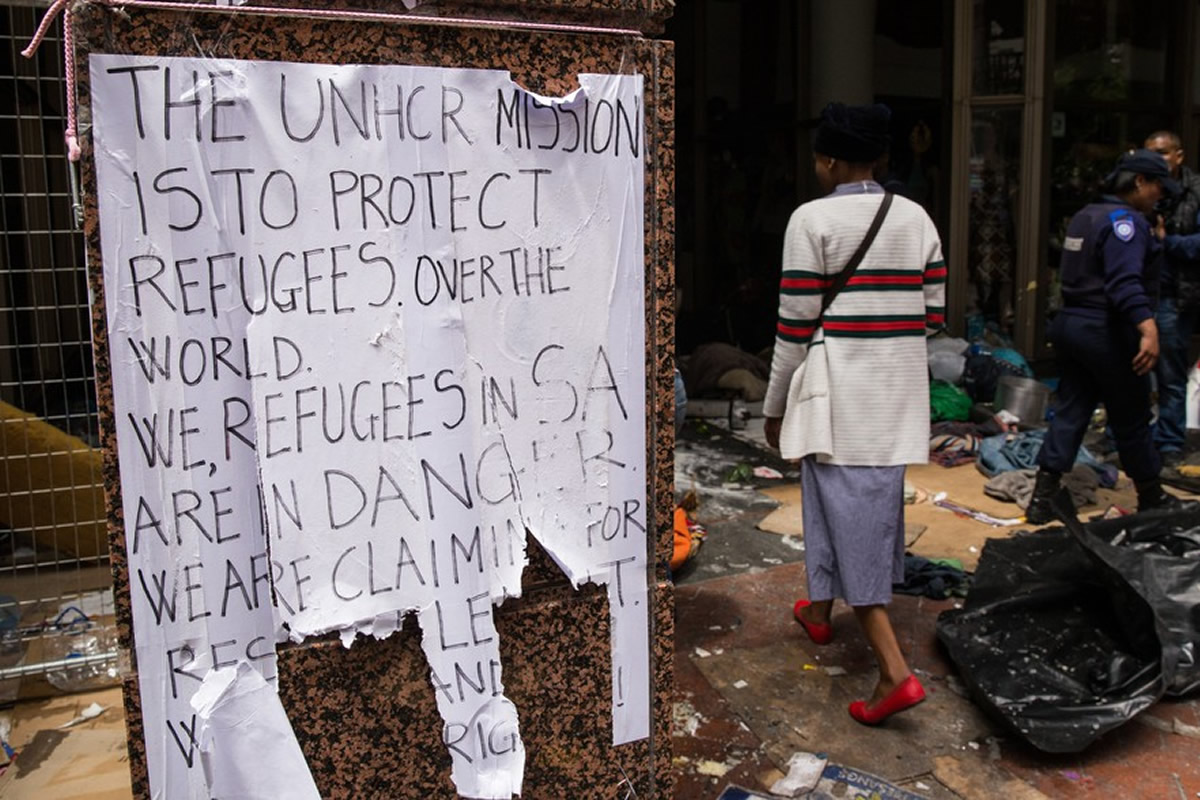The Centre for Human Rights, University of Pretoria, is deeply concerned about the eviction of refugees and asylum seekers who were holding a sit-in at the United Nations High Commissioner for Refugees (UNHCR) office in Cape Town, South Africa. The evictions were carried out by the South African Police Service on 30 October 2019.
The evictions were conducted in a violent manner, violating the dignity of those affected. Furthermore, scenes of children being forcibly separated from their parents are especially concerning, taking into account the standards dealing with the protection of the rights of children that South Africa has committed itself to.
Refugees are persons in need of protection and not persecution. South Africa is a state party to the 1951 UN and the 1969 OAU Refugee Conventions, and has domesticated these treaties through its Refugee Act of 1998. South Africa therefore has a duty to comply with its obligations to protect refugees.
It is important to stress that these refugees have left their countries of origin to seek refuge in South Africa. The robust constitutional protection of all persons in South Africa is an important value which the government of South Africa must uphold. Separation of children from their parents in the manner that happened on 30 October not only puts the children at risk of abuse, but is against South Africa’s duty to ensure that all children within its borders enjoy the standards of protection and wellbeing guaranteed under the Constitution and the Children's Act.
The Centre calls upon the government of South Africa to respect its obligations on the rights of all children as set out in the African Charter on the Rights and Welfare of the Child and the Convention on the Rights of the Child (CRC), which it has ratified. The infringement of the obligation under the Convention on the Rights of the Child is particularly disheartening in this year in which the world, including South Africa, celebrates 30 years of the CRC.
The Centre also strongly emphasises that South Africa has a National Action Plan to Combat Racism, Racial Discrimination, Xenophobia and Related Intolerancethat stresses South Africa’s commitment against xenophobia and all forms of intolerances. These events are a clear contradiction of the National Action Plan. We therefore urge the South African government to implement the provisions of its own National Action Plan.
As conflicts force people to move from other countries, South Africa must remember its struggles against violent oppression, and denounce injustices and xenophobic acts of violence perpetuated against refugees and other foreign nationals. South Africa must not be complicit in perpetuating cycles of xenophobic violence within its borders destroying the democratic fabric. Rather, South Africa must recognise that #AfricanMigrantsMatterand it must take seriously its international commitments towards migrants and other forcibly displaced populations.
We note that a group of refugees and asylum seekers are also holding a sit-in at the UNHCR office in Pretoria and we urge the government of South Africa to take all measures to ensure that similar evictions and human rights violations are not repeated.
The Centre therefore calls on the South African government to:
- Refrain from further forceful eviction of refugees holding a sit-in in front of the UNHCR offices and seek a more peaceful engagement with them;
- Reunite separated children with their parents or guardians with immediate effect; and
- Deliberately cultivate social cohesions between South Africans and all foreign nationals including refugees
For more information, please contact:

Professor of International Human Rights Law
Tel: +27 (0) 12 420 3228
Fax: +27 (0) 86 580 5743
frans.viljoen@up.ac.za

Tel: +27 (0) 12 420 3151
Fax: +27 (0) 86 580 5743
romola.adeola@up.ac.za
